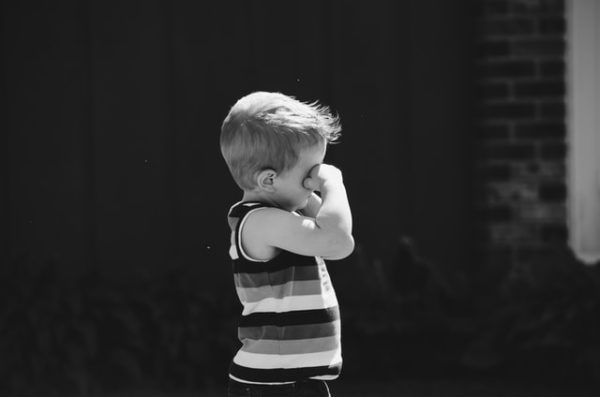Childhood trauma refers to an adverse event that leaves children (ages 0-18 years old) vulnerable and unable to cope with emotional distress. These incidents may have lasting effects on one’s daily life, including possible mental, physical, social, and spiritual health changes.
People may bring their childhood trauma into adulthood. So seeking trauma treatment is ideal to manage its effects in a healthy manner.
What is Childhood Trauma?
Childhood trauma refers to any dangerous, violent, frightening, or life-threatening incident that happens to individuals while they are young.
Statistics reveal that this is more common than most people think. In fact, according to The National Child Traumatic Stress Network (NCTSN), more than two-thirds of children have experienced at least one traumatic event by the age of 16. The most common traumatic events include:
- Physical, emotional, or sexual abuse
- Physical neglect
- Stress brought about by war
- A violent or sudden death of a family member or friend
- Parental separation or divorce
- Incarcerated household member
- Military family-related triggers
- Having experienced critical illness and serious accidents
Traumatic experiences can cause physical and emotional effects and persist for years long after the incident has occurred. Individuals who have experienced this may grow up under constant or extreme stress and may have difficulty expressing and managing their emotions.
Based on a study conducted by The Adverse Childhood Experiences, exposure to traumatic events can also be linked to long-term health consequences like heart disease, depression, diabetes, and stroke.
Signs of Childhood Trauma in Adults
For adults who have experienced childhood trauma, symptoms can manifest in a variety of ways. Here are some of the common signs of childhood trauma in adults that you should take note of:
- Chronic depression and anxiety
- Mood swings
- Difficulties coping with stress
- Feeling lonely and isolated
- Difficulties trusting other people
- Insomnia
- Difficulties concentrating
- Inability to maintain lasting and happy relationships
- Sense of loss
- Feeling edgy
- Chronic fatigue
- Self-harm
- Substance abuse
Early recognition of these signs can help people plan effective strategies to reduce and remediate the symptoms. This way, they can address the issue right away and start navigating the healing process.
Can Childhood Trauma Cause Depression in Adults?
Early exposure to traumatic experiences increases one’s risk of developing behavioral and psychological problems in adulthood. As a result, children with such experiences have a higher risk of showing childhood trauma symptoms in adults, including depression, anxiety, suicidal tendencies, aggressive behavior, and post-traumatic stress disorder.

Research published in the Brazilian Journal of Psychiatry confirms this, mentioning that childhood trauma is one of the most common factors that influence the likelihood of developing major depression in adults.
Childhood trauma can have repercussions in one’s life. Failure to recognize and process them in a healthy manner early on could result in mental health problems as the person grows old.
If you are struggling with depression now due to your traumatic childhood, a thorough and comprehensive therapy can help you recover.
Health Impact of Childhood Trauma Across a Lifetime
Exposure to trauma triggers cortisol and adrenaline production, activating the body’s fight or flight response. However, trauma may also trigger this response even without a threat.
The frequent activation of stress responses leads to chronic stress. It increases inflammation and leads to a wide range of health problems, such as autoimmune and cardiovascular diseases.
To cope with the pain of childhood trauma, some people exhibit health risk behaviors, such as eating too much or too little, drug use, smoking, or getting involved in risky sexual activities. These could subsequently cause chronic lung disease, liver cancer, liver disease, viral hepatitis, sexually transmitted infections, and other mental health conditions.

Some people who suffer from trauma refuse to seek medical care to avoid thinking and talking about their traumatic experience — but this should not be the case.
Those who are experiencing signs of childhood trauma in adults can always find help. There is still a chance to recover from the pain of the past by facing their issues head-on.
Here are some ways to address the effects of childhood trauma:
- Take care of themselves. Also, do something to relieve stress and anxiety. Regular exercise helps, as well as practicing meditation or yoga.
- Connect with people. Studies have also shown that forming solid social relationships with loved ones, family members, and friends is beneficial to mental health.
- Seek therapy. Consulting a therapist can help victims recount their experiences little by little to determine the cause of their trauma. Additionally, with therapists’ professional support, patients learn how to manage their symptoms and live a more fulfilling life.
Treatments for Overcoming Childhood Trauma
Dealing with childhood trauma symptoms is a painful but vital process to work through. Adults can resolve childhood trauma through counseling; so here are a number of therapies for childhood trauma that work:
Cognitive Processing Therapy (CPT)
Cognitive processing therapy is a form of cognitive therapy that is used to treat patients who have experienced a traumatic event (PTSD). Also, veterans, sexual harassment victims, and children who have undergone violence or trauma have all been shown to benefit from this program. CPT’s primary goal is to basically help the survivor reframe and rationalize the traumatic experiences he or she has been through.
Trauma-Focused Cognitive Behavioral Therapy (TF-CBT)
Trauma-focused cognitive behavioral therapy is a type of psychotherapy that uses knowledge and cognitive responses to help patients transform unhealthy behaviors, such as negative mental, behavioral, and thinking patterns, into constructive solutions.
Eye Movement Desensitization and Reprocessing (EMDR)
Another common trauma therapy is called Eye Movement Desensitization and Reprocessing or EMDR. Individuals relive particular traumatic memories momentarily as the therapist guides their eye movements during EMDR. Basically, the objective of EMDR is to assist people in processing and integrating traumatic memories.
Take The Next Step
If you are looking for a depression and anxiety treatment or a PTSD treatment in Long Beach, CA that targets to address the impact of childhood trauma, Roots Through Recovery is a name you can trust. We have trained and compassionate therapists who can confirm your diagnosis, manage risks, and create an appropriate treatment plan.
Let us help manage your symptoms and improve your quality of life. Take the next step and call us at 866-766-8776 to schedule an appointment. We care for your recovery.





